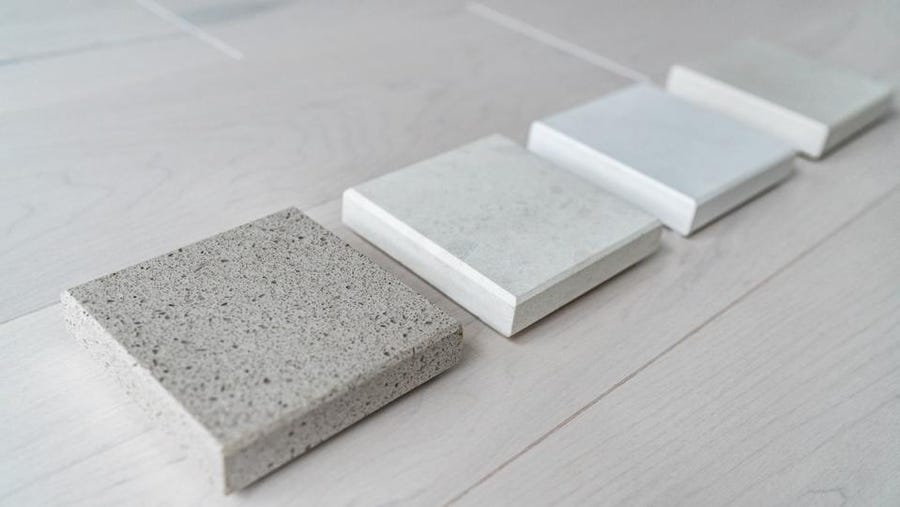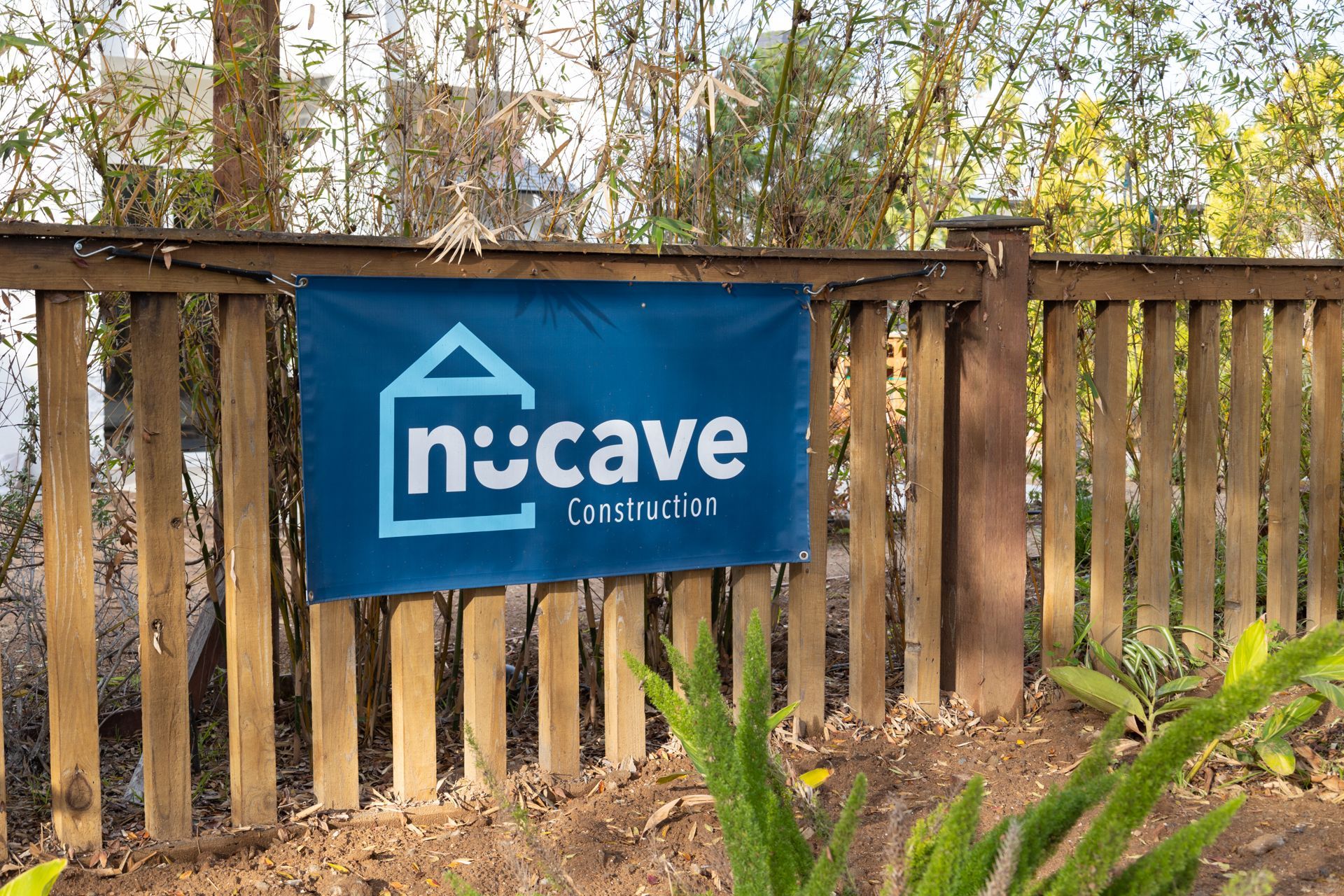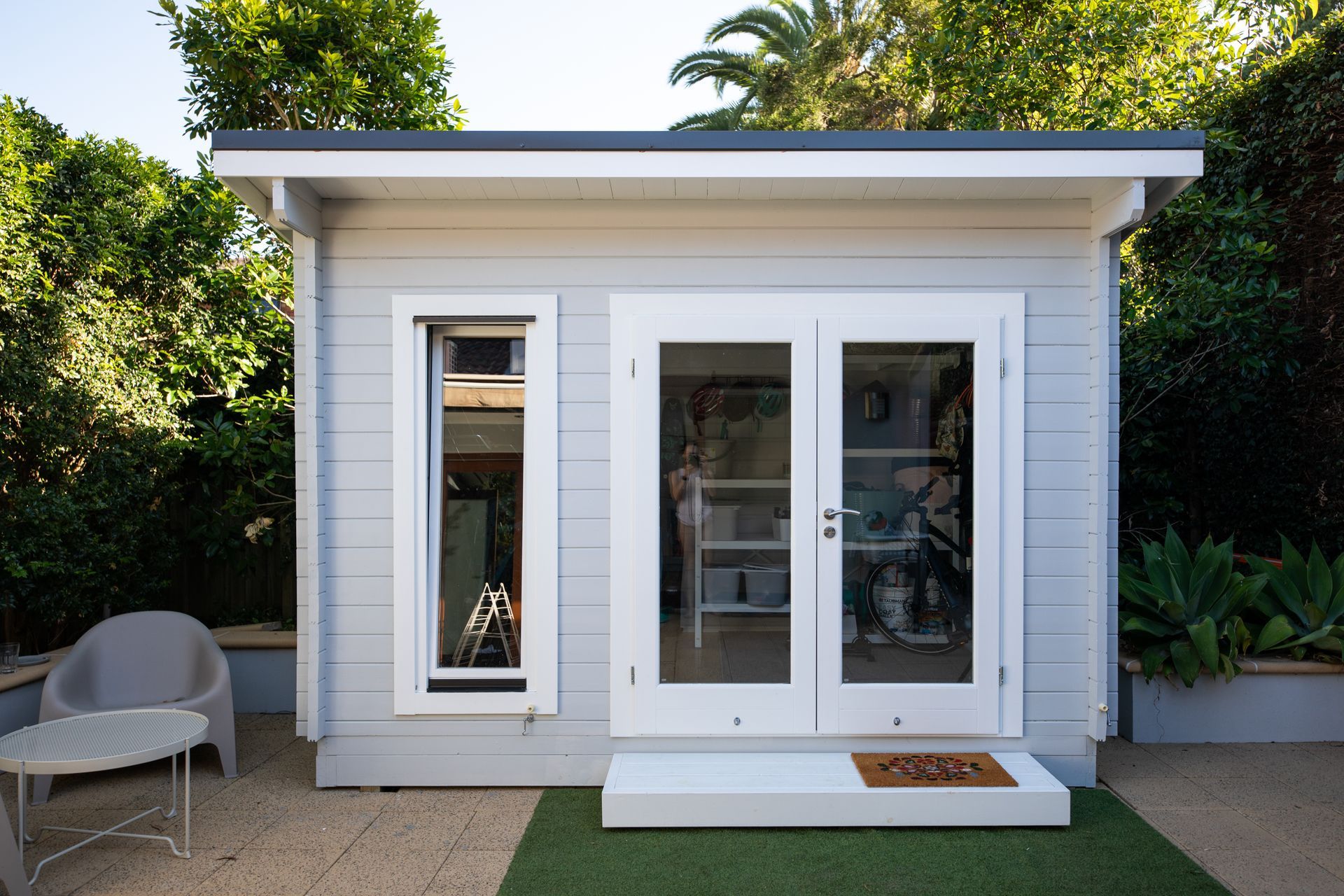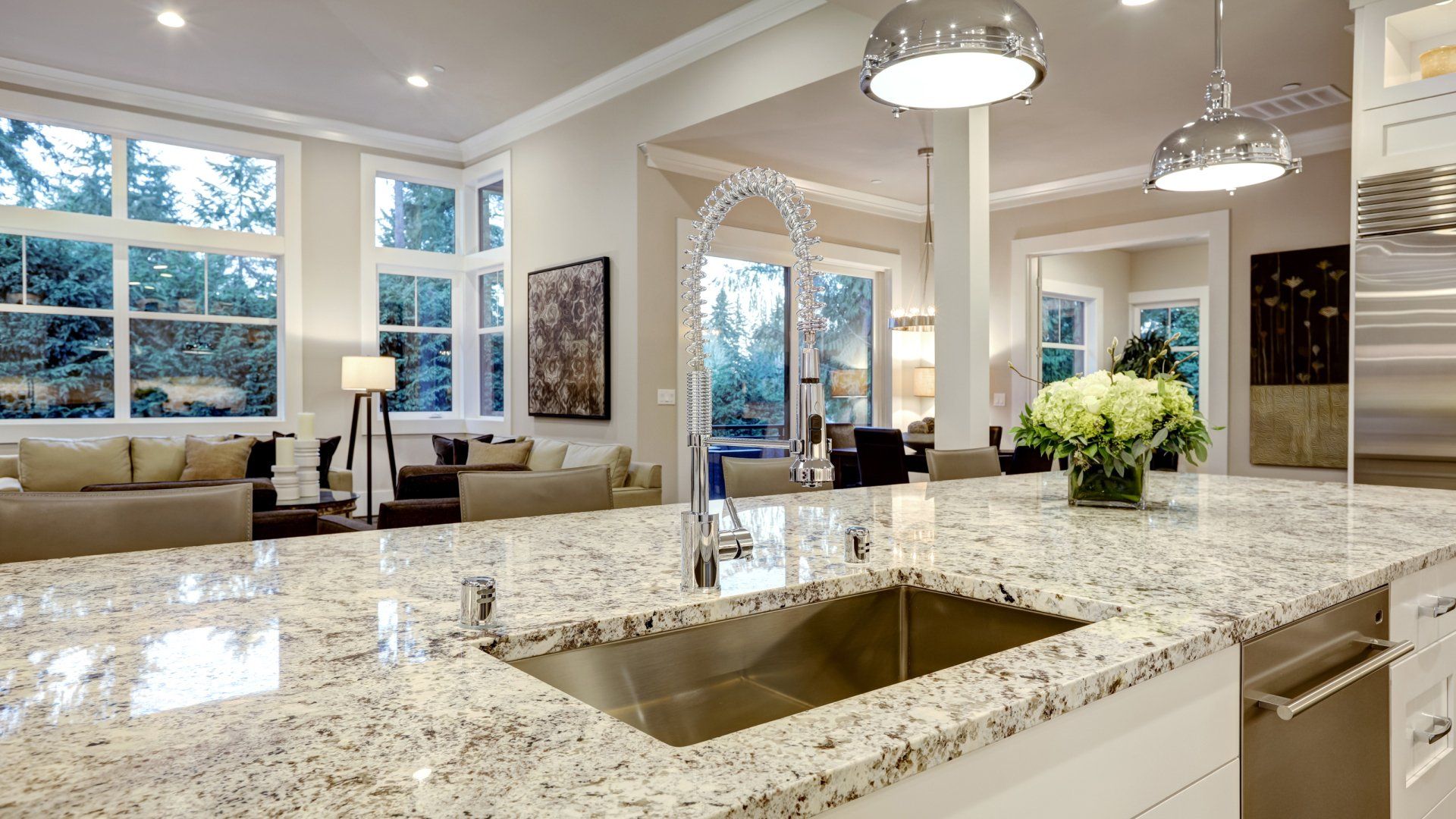
Granite
Granite comes in many different colors and patterns due to the way it’s formed (cooling and solidifying of molten materials). Whether you’re looking for a subtle complement to your kitchen or a standout slab with unique mineral inclusions, there is a limitless selection to choose from and no two granite countertops are the same.
Granite is a durable material that’s resistant to heat and many other kitchen elements. Due to its porous nature though, there can be some staining if spilled liquids are left sitting and damage can be done if your counter receives a high impact blow.
Granite ends up in your kitchen is if it’s quarried and that uses a lot of energy. If you opt for a high-end slab from Italy, there would be considerable transportation involved.
Granite countertops should be cleaned daily with soap and water or a mild household cleaner. Some oils and acids can stain so do your homework first to avoid stains. To ensure the longevity of your investment, consider having your countertops resealed once a year.
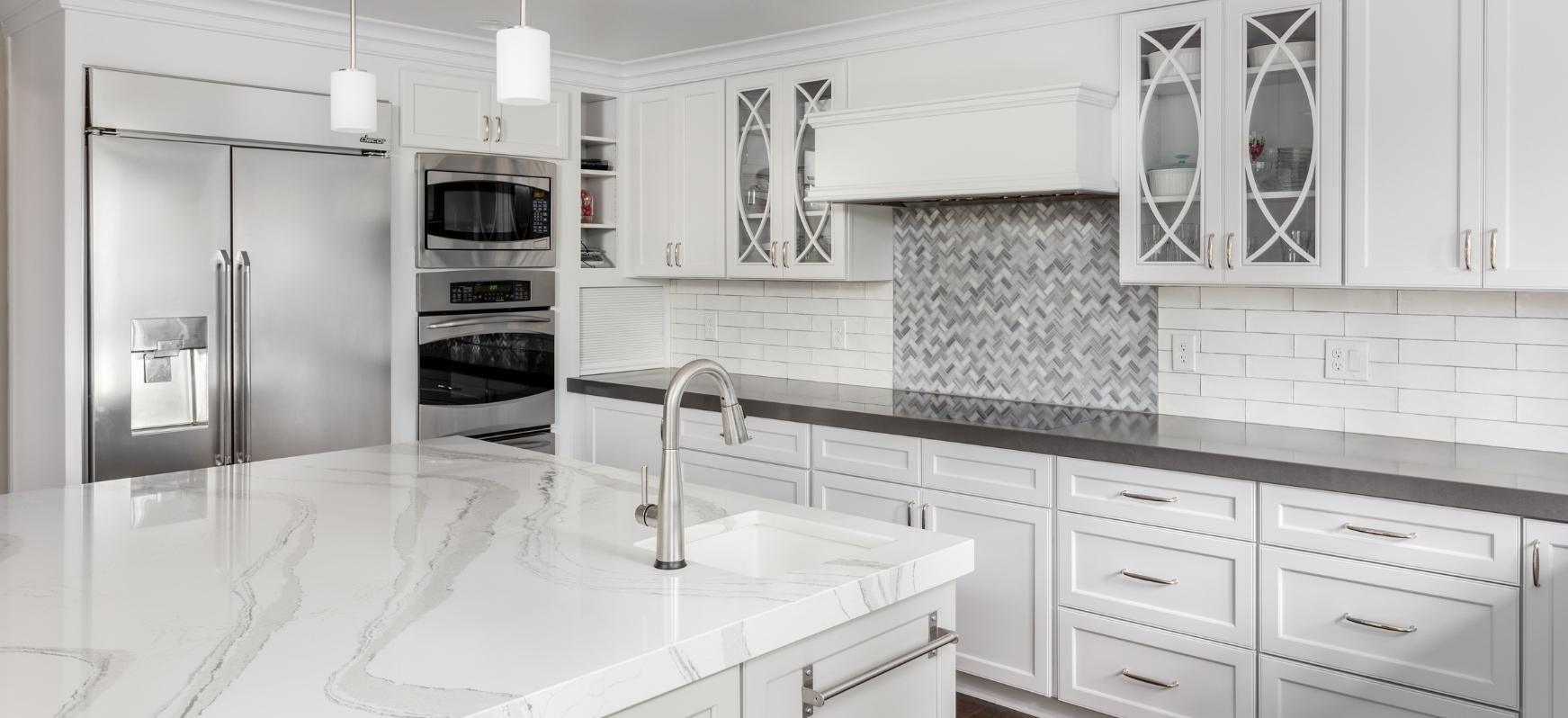
Quartz
One of the main reasons quartz has exploded in popularity is due to appearance. Quartz has the look of stone while also allowing homeowners to customize the design. While granite offers many options in terms of appearance, you may have to search for the right piece that matches your color scheme. With quartz, the selection process is much easier.
Like granite, you’ll want to clean any spills on quartz countertops with soap and water or a household cleaner, but that’s about it in terms of maintenance. The solid surface means that there is no need to have your countertops resealed.
Quartz is actually harder than granite and thus, more durable. In fact, quartz is nearly indestructible, and because it isn’t porous like granite, it’s easy to keep your countertops relatively bacteria-free. Be careful with cooking pans though! Because quartz can be damaged by excessive heat, so use heating pads at all times.
Since quartz is engineered, its environmentally-friendly compared to granite if you use regionally manufactured stone and local fabricators. This cuts down on the distance the material needs to be transported.
How Much Can They Vary In Cost?
Average cost to purchase granite and have it installed can cost between $2,000 and $4,500. By purchasing the material from a wholesaler and doing some of the preliminary work yourself, you may save some money but fabrication and installation should always be completed by a professional.
Depending on the quality of quartz and style of edging, average cost to install quartz countertops in a kitchen can cost between $3,000 to $7,500. Since engineered quartz is heavier than other stone surfaces, a professional installer needs to make sure the space is structurally sound.
So Which is best ??
Truthfully it all comes down to your budget. The look your looking for, and the maintenance you want to have. They are both good options, and very long lasting. Ultimately both quartz and granite are great and beautiful options for every home.
